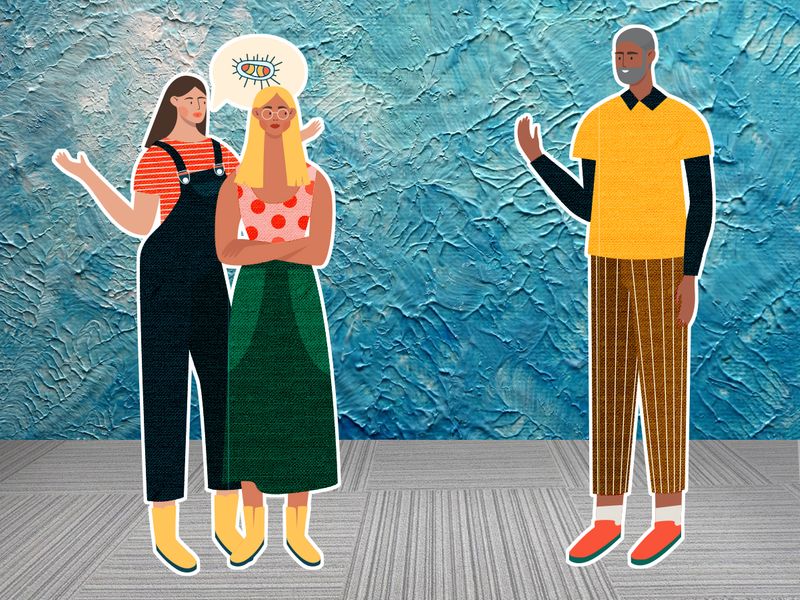
Like Our Facebook Page For Latest News
COVID-19, we will never forget it. A disease that ravaged the world, it has become the global pandemic of our times. One that affected millions and killed hundreds of thousands of us. We cower in fear at the mention of the new coronavirus.
Now, as we emerge from lockdowns, curfews and disinfection campaigns, our lives have changed. After months of working from homes, we return to offices armed with face masks and sanitisers. And what we find is a socially-distanced world. A world without hugs and handshakes.
Social distancing in the office feels weird. There would be no banter by the water cooler. What’s an office lunch if you don’t share the table with your co-workers. Coffee breaks and smoke breaks will have to be solitary affairs.
We will mumble our good mornings through the masks, spray sanitisers on the keyboards and desk, and get to work. Meetings will be thinner and swift. Colleagues won’t stop by your desk to share news or gossip. It will be an office without smiles and laughter.
The virus threat lingers. We wouldn’t want to take chances; that would be irresponsible. The discomforts of masks and social distancing are a small price to pay to avoid the distress wrought by COVID-19.
The office is the fulcrum of our lives. We have to return. We want to return. But a mortal fear of the virus stalks us. Is it safe to return? Are you keen to return? How did the virus change your life? Is coronavirus still on your minds?
We asked these questions to our team. Here’s what some of them said.

I tested positive. Will I be a pariah in the office?
Shyam A. Krishna, Senior Associate Editor
I was never scared of the coronavirus. But I’m worried now. Very worried. Especially since we are returning to office soon.
The fatality rate of COVID-19 remains very low, yet the new coronavirus has to be feared. It can kill. Most people escape with mild flu-like symptoms, but it could kill others.
I was lucky. My brush with coronavirus turned out to be a non-event. I tested negative for COVID-19 when a fever raged for more than 10 days. A fortnight later, when there was talk of returning to the office I tested again. And it turned out to be POSITIVE!
I had no fever, no body pain. Not even a headache. I was completely asymptomatic. Yet I was shedding the virus. I could infect others; never mind the WHO’s statements.
For 14 days, I isolated myself at home. Took all the necessary precautions. But I worked from home every day, except on my weekends. I was fine. When the test turned up NEGATIVE, I wasn’t surprised. But it was a huge relief.
Relieved that I can return to office without the fear of spreading coronavirus. I wonder how my colleagues will treat me. Will there be murmurs and whispers: “He’s has had corona.” Will they politely steer away from me? Will I be a pariah?
Whatever it is, I would understand. This virus is not to be trifled with. It’s highly contagious. Stay away not just from me, even from each other. That’s social distancing. Along with masks and handwashing, it’s key to fighting the virus.
I may not be shedding the virus, but it’s firmly lodged in my mind. I will keep away from my friends and colleagues. It’s not paranoia. It’s common sense.
We have to get our lives back. Lives without the coronavirus.
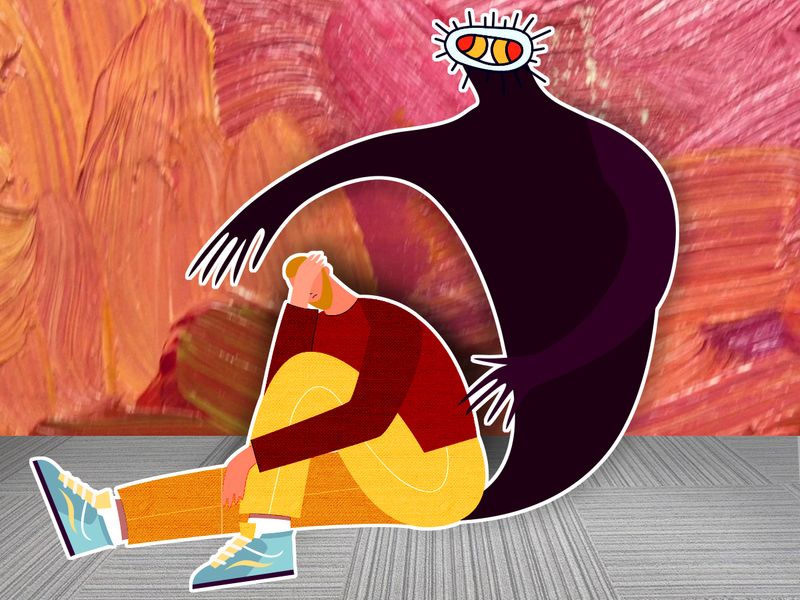
A scar that will never heal
Ashley Hammond, UAE Editor
Coronavirus will forever be on my mind. Not in the sense that I’ll always be looking over my shoulder in fear of a lingering killer that will never leave us, but more through its legacy and what it ultimately taught us.
The reality of actually getting it, for most of us I hope, is just a couple weeks of inconvenience, as only a very small minority of sufferers require intensive care treatment. In that respect, I’m not going to be a quivering hypochondriac always eyeballing the person next to me to make sure they don’t get too close.
Within a year, I expect we would have done away with face masks, hand washing and social distancing, so it won’t stay at the forefront of my mind. Things will get back to normal because they have to.
However, in moments of pause and reflection in years to come, it will be looked upon as a turning point in our lives for so many of us — myself included.
Other pandemics like SARS and Ebola, were shown on the news and appeared to just affect other people, but COVID-19 struck much closer to home and underlined just how fragile our existence is in a way that’s never been done outside of war.
This was our health 9/11. A point at which we had to take stock and move forward knowing nothing will ever be the same again.
For many of us the prolonged stay home would have made us question our old existence and whether that is something we really want to replicate going forward. I don’t just mean environmentally either — for those who have lost loved ones, jobs and livelihoods it will be that scar that doesn’t fade. But, it will also be that scar that reminds us to be better people and more engaged in our families and the present, because deep down we now truly know that everything can change in a moment. Why will it never leave my mind? Because I’ll never be naive to that fact ever again thanks to coronavirus and you didn’t need to have contracted it to realise this.
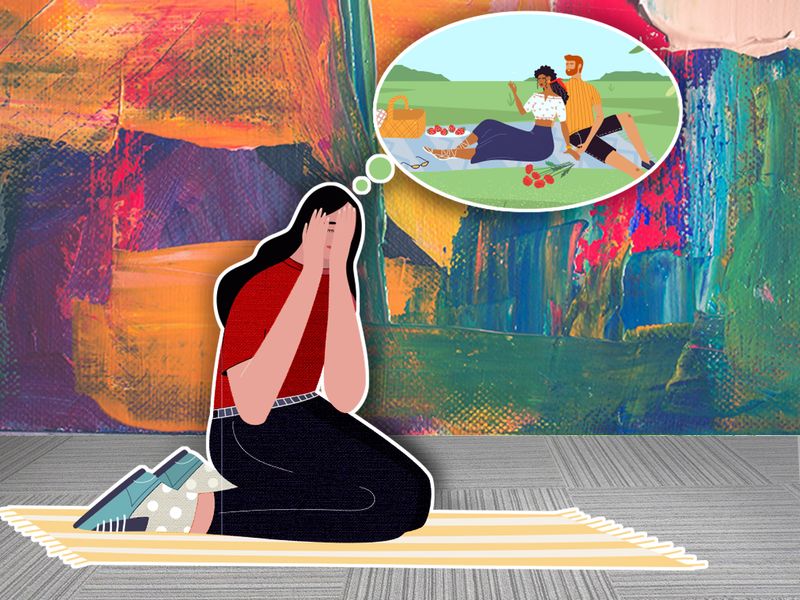
I am caught in hurricane of what if’s
Sara Al Shurafa, Senior News Editor
We are in June now; it has been six months since all the talk and chatter of the coronavirus have started. And it’s been four months since it had hit our beloved city. Since then I have been stuck in a hurricane of a never-ending WHAT IF.
What if I get infected? What if one of my kids get infected? What if I lose one of my parents, and am far away? What if this is the life my children have to live for the rest of their lives? What if that man fixing my AC has the virus? What if my nanny gets it from her sister and brings it to my house? What if they open airports and we go to visit our family, and we are stuck in a lockdown somewhere outside UAE? What if we get infected out of UAE; do I trust any other place; will my medical insurance cover it.
With the city trying to go back into normal life, I feel am getting sucked more and more into my anxieties. I still didn’t want to go back to office, because the ‘What if’ feeling from the thought is so big that it gives me panic attacks.
I miss my old spontaneous outgoing self. I miss hopping on a flight. I miss just walking into a restaurant or a park.
I hate Fridays these days because deep inside I want to go out and enjoy with my girls, but the huge WHAT IF makes me sit still on my sofa all day.
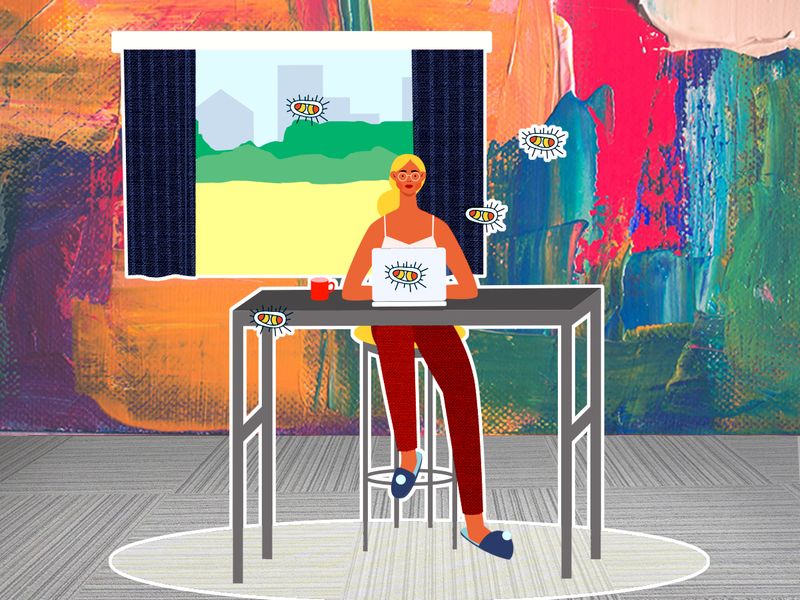
The what if’s are here to stay…
Karishma H. Nandkeolyar, Senior News Editor
Take your mask off. Throw it in the bin. Gloves now, using one to remove the other — contact must be minimal. Don’t forget the hand sanitiser, before touching the keys to the front door. The shoes must be left at the entrance. Ignore the dancing dog. Head to the bathroom, careful not to touch anything. Shampoo, soap, water. Clothes wrapped up in the used towel instantly thrown into the washing machine. Another round of handwashing. 20 seconds please. Now we can say our hellos.
But, what if… what if all these precautions were NOT needed. Most cases of the coronavirus are asymptomatic, a greater number get by with a bout of flu. In these two months since we started to shutter our doors and windows and sequester ourselves at home, I’ve gone out a few times. I’ve also woken up to body pain, aches and running a slight fever. I’ve had dry coughs — intermittently. I’ve heard similar sniffs and hacks from the other side of the wall. So, what if I’ve already gone through that tunnel and emerged on the other side. What if all the people in my house have?
We’ve not been tested — belonging to a group with little chance of contracting the virus thanks to our committed anti-social ways. But it’s not like our communication with the world has completely halted. There have been deliveries and conversations with maintenance people, who’ve entered the house not wearing gloves. What if we actually have immunity and antibodies? What if we are actually safe?
What if we could be going on with our daily lives without worry?
Once travel restrictions ease, I will always wonder — is my paranoia valid or a hangover of earlier times. If I get tested for antibodies, no matter what the outcome it’ll lead to more questions. For, if I have antibodies, how long will they protect me? From which strains? And if I turn out to be negative, the guillotine blade of infection will always seem to be swinging inches away from my neck.
Will corona always be on my mind? Unfortunately, that part has been confirmed in indelible ink along with my hatred for facemasks.
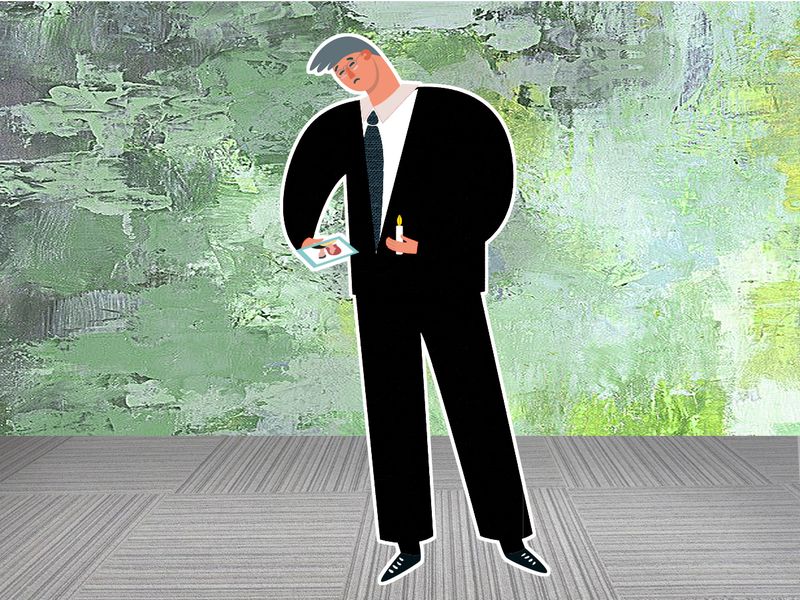
When death changes the perspective
Alex Abraham, Senior Associate Editor
For half a year now, we have been bombarded by facts and figures — sometimes contradictory — about COVID-19, how it spreads, how to tackle it and how best to stay safe. We have seen how the world is still struggling to tackle the pandemic — mostly through some form of lockdown, while the braver ones hope to develop herd immunity.
I, too, have stayed indoors and worked from home, stirring out for weekly grocery or walking around the block for some exercise and fresh air.
But when death knocks at the door, the perspective changes. Scientific studies and research papers have their own place. What matters is a human life.
For three weeks a relative fought the coronavirus. He seemed healthy, except for mild symptoms, and it looked like hospitalisation would help him recover faster. However, that was not to be. A few days ago, we gave him the best funeral possible under the circumstances and came home wondering how life could be snuffed out so fast. Around the world the families of 430,000 others are asking the same questions. How could this happen?
A near-death experience often makes a person think about the fragility of life, of relationships that matter and of where our priorities should lie. And when death actually knocks at the door, especially so close to you, it gives a jolt.
Regardless of whether a cure is found for the novel coronavirus, for the grieving family of a COVID-19 victim, life will never be the same again.
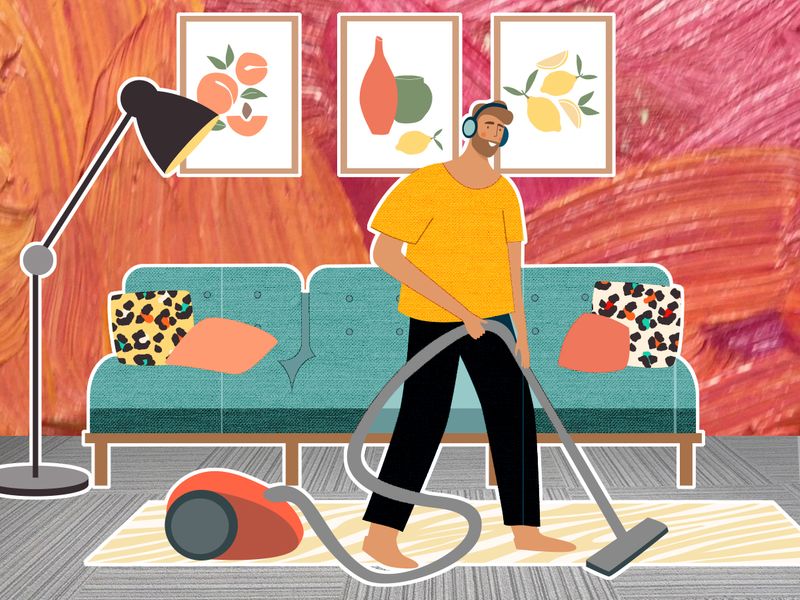
I will miss coronavirus. It suited me
Imran Malik, Senior News Editor
My cupboard is split right down the middle. On the left are the clothes I normally wear to work and on the right are the things I keep for special occasions, such as social events. I hate this side. All the items hanging there do nothing but remind me I am getting fat.
I also hate shaving. Do you ladies know how painful it is to drive a razor around your face and then splash it with cologne? I haven’t had to do this, or dress up, very often at all lately — and my face and I love it.
This lockdown caused by the pandemic has not really affected me much. I used to stay in long before it got fashionable. I’m an introvert and prefer the company of family and close friends rather than meeting new people or doing new things. People are awful. Dealing with them digitally now — where you can literally shut them off with a push of a button — is genius.
Our lives are also no longer a series of commitments that range from social events, family gatherings or work-related meetings. Society has changed overnight. It has been reshaped and suits a more introverted way of being. Our diaries are clear and we’ve been blessed with time to do other things too. I’ve learnt to fry an egg without breaking the yolk. Pat on the back for me.
What about my usual routine? Has this been affected due to the pandemic? Well, my memory sure has. On Saturday mornings, I pop in to my local grocery shop to get milk and bread. It is literally 100 metres from my building. I haven’t been there in months and I genuinely can’t remember what it looks like anymore. Or, how to get there.
The big wide world has come to a halt but I have realised that all I really need is WIFI and chocolate. Do I miss my beloved Everton FC? No, because they get beat every other week which puts me in a foul mood but since they haven’t played in months I am enjoying this long unbeaten run of theirs.
Do I miss driving my beautiful, classic 1980 Pontiac Firebird? No — because it spends most of its time being fixed at the garage anyway. Work mates? I have Zoom and WhatsApp for that. Cinema? Netflix and YouTube. Restaurants? Delivery. The beach? The bath tub. I could go on.
Basically, lockdown for this introvert hasn’t really changed too much. But since the world is designed towards the extrovert’s need for stimulation (open-plan offices, daily meetings, networking etc, etc) these people will have been struggling pretty badly, so I’ll spare a thought for them. I’ve got plenty of time to do so.
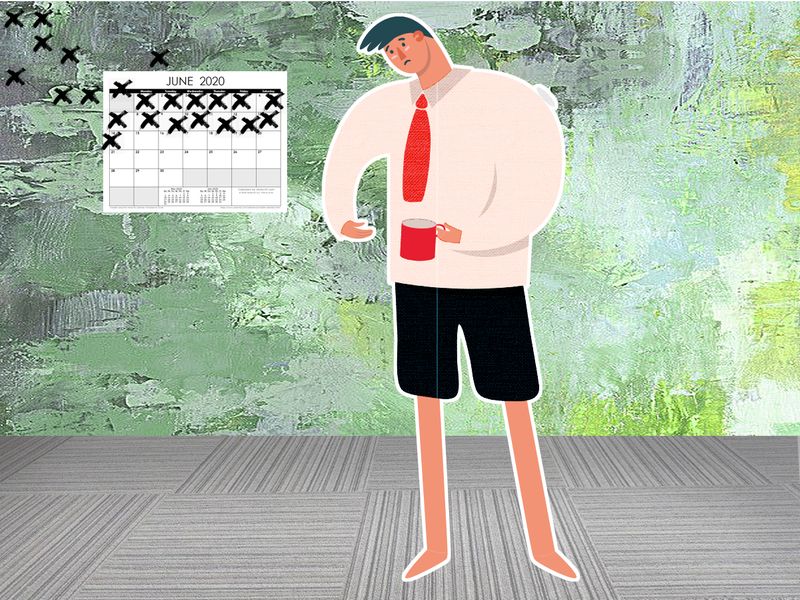
COVID-19: I’m cast into gloom
Omar Shariff, International Editor
Has it occurred to you? Half the year has gone by! I remember standing by the Dubai Water Canal and watching New Year’s fireworks at Burj Khalifa with my family. Definitely don’t remember thinking about an outbreak that was crippling life in a place called Wuhan at that time.
For what looks like an eternity, I’ve been working from home. I’m cast into gloom. Days blend into nights, weeks into months. I’ve taken to wearing a waterproof watch 24/7 as I am finding it hard to keep track of date and time. I’ve reached a stage where I can predict what I’ll be doing at that time the next day.
The early days of WFH were good. No getting up two hours before actually switching on the computer; no rushed breakfast; no traffic to get stuck in. Also remember being amused by a video put up by a girl on YouTube, a parody of the hit song ‘Havana’. ‘Corona na-na-na …’ But once the death toll began to mount and salary cuts kicked in, I couldn’t see the funny side. And the constant backdrop of the kids’ e-learning is taking a toll on me.
So, do I want to go back to work? The question arose again the other day, and I found myself among a tiny minority — could literally be counted on the fingers of one hand — who were up for it. For reasons I don’t fully fathom, a majority of my colleagues seem to love WFH. When I say majority, I mean more than 90 per cent. Which made me reflect: Is something wrong with me?
I’d like to think not. I need a change of scenery. That’s all. I miss the office banter and my old routine. I even miss working on a proper desktop. In fact, a scenario in which only a handful of colleagues want to go back to work suits me perfectly. What better than to be in an almost empty office but in familiar surroundings with enough people to talk to? Win-win, if you ask me.
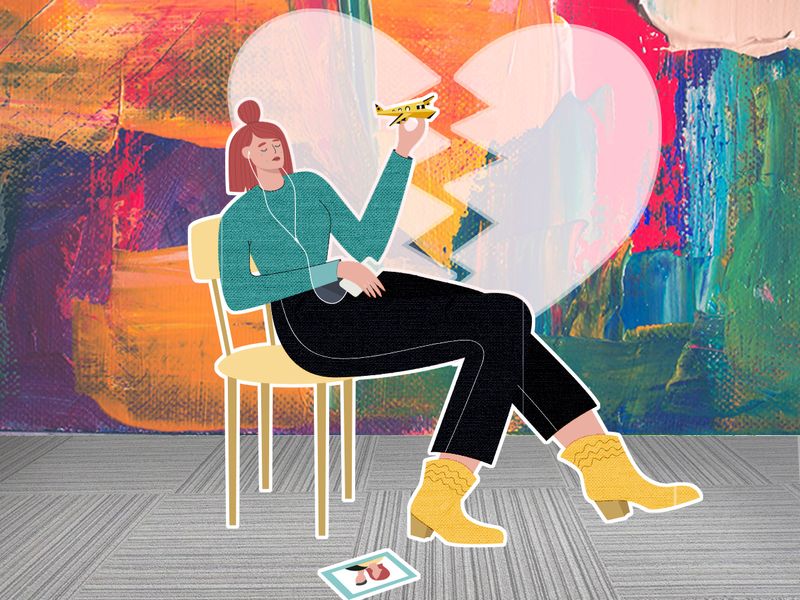
So you’re still thinking about me — coronavirus
Yousra Zaki, Senior Features Editor
People always have that list of things they “want to do before they turn 30”.
I had a lot riding on this year. Meeting people, travel, fitness goals and more. Coronavirus kind of ruined 29 for me.
Instead of trying out new restaurants, visiting Bali and going to Italy and Toronto for my brother’s graduation. I stayed home.
Instead of working on myself at the gym and reaching optimal health in order to enter my next decade with a solid foundation physically and mentally. I stayed home.
I mean it wasn’t all too bad. I managed to meditate a lot. I worked on improving my skin and hair and for the first time ever, I never worried about FOMO (fear of missing out). It was pretty liberating.
And don’t get me wrong. Now that we can go out, I am feeling a bit more back to normal. Sometimes I get out of my car and forget to wear my mask. Then have to rush back and put it on.
Even though I have little memory lapses. Forgetting my mask when I leave my house or almost touching my face when I am out, I know that I will never forget about corona.
I will never forget staying home for two months or the sounds of the helicopters sanitising the streets. I won’t forget having my temperature taken at every store, restaurant or mall entrance. I won’t forget missing my younger brother’s graduation.
In 10 years from now when I am 40, and washing my hands for 20 seconds or thinking of wearing a mask when I travel, corona will pop into my head and say “So, you’re still thinking about me?”
And I’ll just be like… “Yes. How can I forget?”
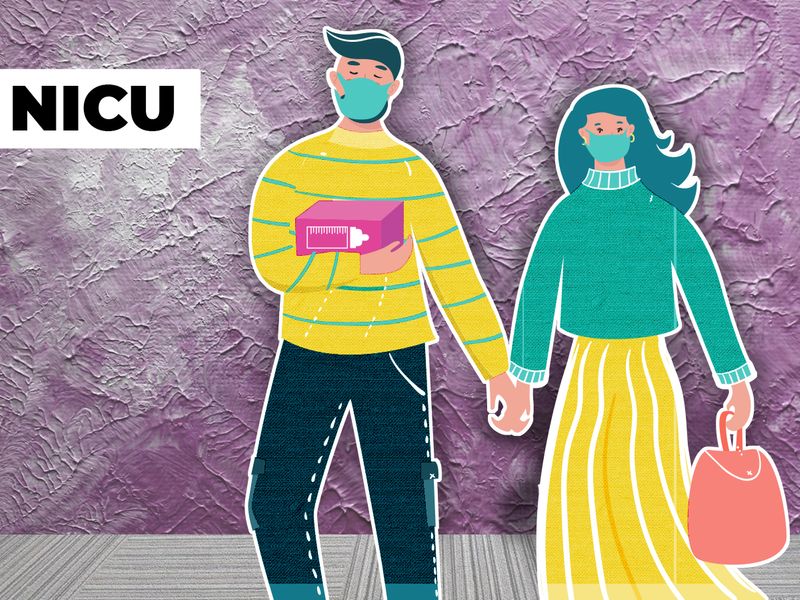
Coronavirus eclipsed the joy of parenthood
Sadiq Shaban, Opinion Editor
Our baby was born bang in the middle of the pandemic. Since she was born premature, the doctors put her in the neonatal intensive care unit (NICU) of the hospital. As parents, it was a tough time.
The joy of parenthood was quickly eclipsed by fears about the baby’s wellbeing. Was it safe to keep her in the hospital during coronavirus? How do we make sure that the medical staff taking care of her were free of the virus? We had no option. Only sleepless nights. The mental trauma would not go. The anxiety continued.
You are supposed to bring the lactating mother’s milk for the baby. That meant countless trips to the hospital. Around the same time, hospitals were designated as high-risk spaces, exactly the kind of places you would not want to be in. But here I was: every single day of the week, two times a day, stationed outside the NICU, waiting for the nurses to throw open the door so that I could hand over pouches of milk for our newborn.
It was during those long, tense moments — as everyone around me walked hurriedly in facemasks, that I had many conversations with myself. With COVID-19 infection rates spiralling around the globe and an unsure world finding it overwhelming to respond to the crisis, I was trying to rank my personal crisis with that of the world around me. As days went along, I noticed something profound shifting and moving in most of us.
Now months on, as economies slowly unlock and the world gingerly attempts to walk back to normal, the question that bothers still me is this: Will we really be normal ever again?
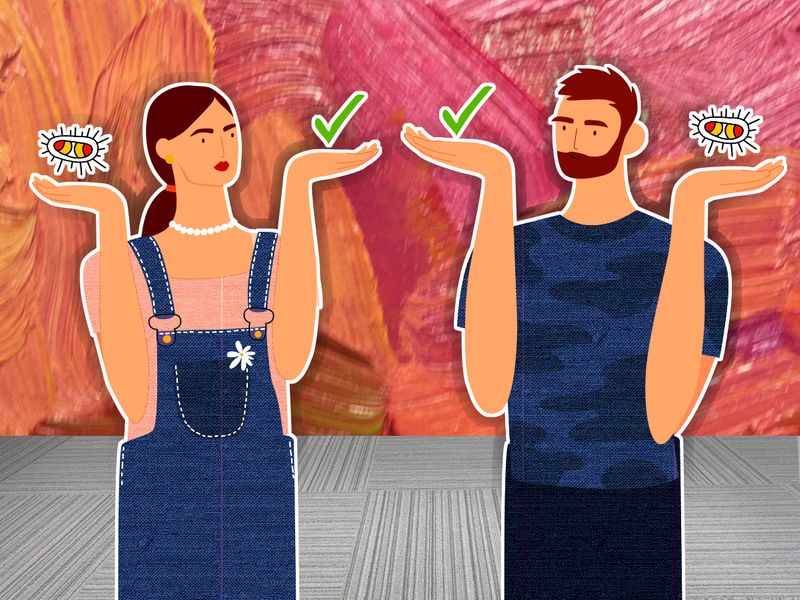
Of ‘sour’ lemons and the unkindest ‘cut’
Sanjib Kumar Das, Senior News Editor
Roughly a month-and-a-half back, in a piece that I wrote on how movement restrictions and social distancing had changed my life, I had said: ‘When life gives you lemons, make lemonade.’
That was early May.
About six weeks later, as I write this one, a weird feeling runs through my mind.
If having a lemonade is all about apprehension on how many hands those lemons could possibly have passed through before reaching my tall, chic glass and much less about a sip, sip, sip to bliss … then I must say that I’m living a life too surreal to even try and salvage some meaning out of it.
And the biggest casualty is the element of mutual trust and bonding that we human beings have always shared with each other — or at the least would have loved to think we shared.
As the hitherto sparingly-used hand sanitiser quietly but definitively makes its way from that nondescript corner shelf in the kitchen to the coffee table in my living room; as I unmistakeably steal that one last suspicion-soaked glance from the corner of my left eye at the gloved hands of the home delivery guy as he hands me back the change; as the look of the barren tables at the branded chai shop behind my building sends yet another agonising reminder of one more evening gone by without socialising the way I have always known it … it’s just a reconfirmation of the acute trust-deficit that humanity has been thrust into by a virus thousand times thinner than a strand of human hair. And the worst part is — this trust-deficit comes without a sell-by date!
It’s shocking. But perhaps not as much as the shock I had upon seeing my son on Zoom the other day. “You call this a ‘hair cut?’,” I thundered. “Yes. I’ve just made sure I don’t have to visit the barber until at least November.”
Corona, I hate you!
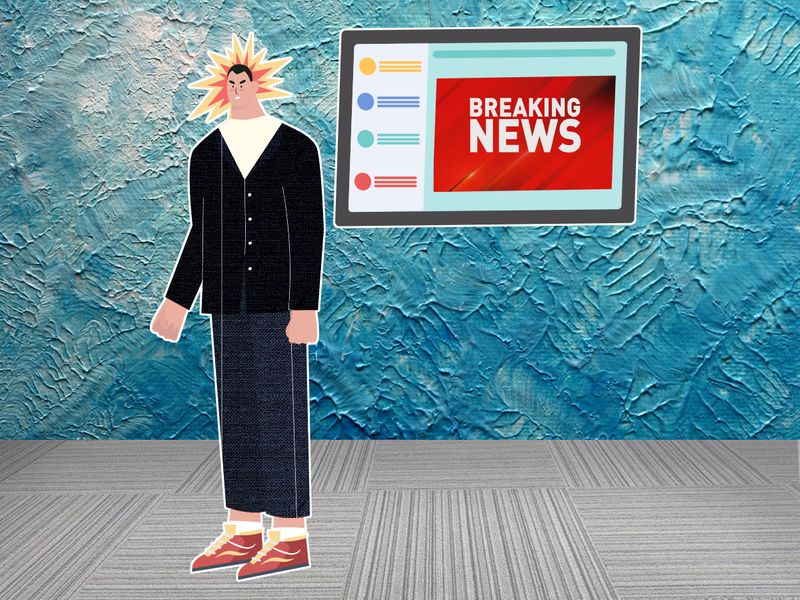
TV and the smartphone are now my enemies
Gautam Bhattacharyya, Senior Associate Editor
It’s been a life lesson for most of us — who have spent so long in the business of news – to try and not to be affected by the misery of people. Be it accidents, riots, natural calamities or the death of your favourite icons – the bosses always told you to retain objectivity as the ultimate objective would be to ‘outdo’ the rivals with your packages across all platforms.
This COVID-19, however, is different. It has slowly poisoned me against two of my biggest fall-back options — the smartphone and the TV set at home — as I have been held hostage like my colleagues to the virus by working from home for more than two months now. I will tell you how.
It was about four months back in February, when the coronavirus was still not termed as pandemic, there was plain curiosity about what was happening in the Chinese province of Wuhan. Somehow secure in the thought it won’t be able to wreak as much havoc as the SARS in Singapore in 2002, I caught up casually with what was going on and cursed the wet-markets in China. The rubiks, which now keep popping up to give you updates of the world and country-wise break-ups, were a far-fetched thought then.
Cut to June and it’s a combination of corona fatigue, indifference and can’t-get-any-worse syndrome with which I turn towards my phone or switch on the TV. The post-dinner TV sessions are consumed by figures — sheer figures — as everyday sees a spike back in my home country or state and terms like ‘total affected cases,’ ‘recoveries’ and ‘deaths’ have become part of the routine.
The mind certainly wants to gravitate towards a new web series, or even better, live sport — as there is now some back on offer. But then, lest I feel ‘guilty’ of being in denial, I stay back on the news channel and listen to a health official’s briefing — more figures again — or yet another expert spewing another theory.
Like all pandemics, this one is now seeing a ray of light at the end of the tunnel. It will surely end — but it will stay on in my mind all my life.
In all our minds who have gone through this!
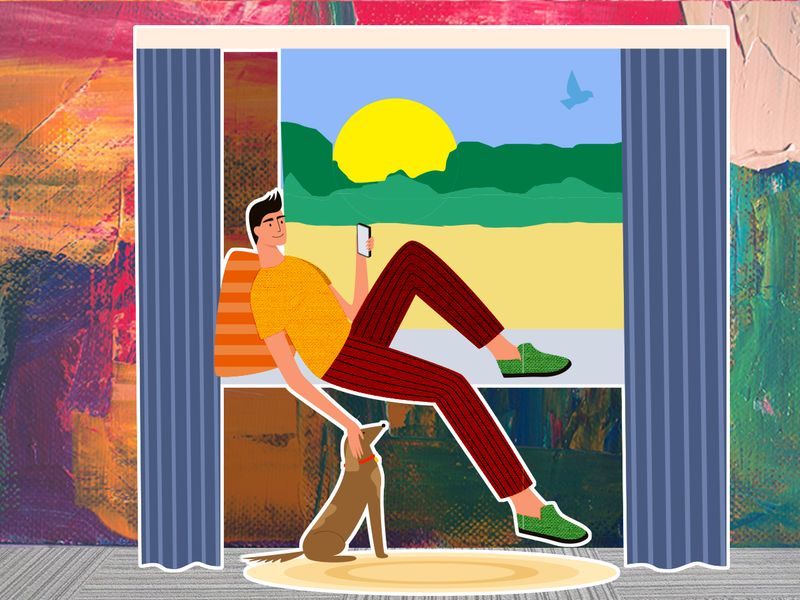
The worst of times, the best of times
Jay Hilotin, Assistant Editor
Is this coronavirus the curse of our age?
The curse, I believe, is self-imposed — through mutual suspicion, blithe disregard for each other, extreme prejudices and a life of excesses.
This virus has forced us to redesign plans, shift focus and rediscover basic truths: The reality of death, and its flipside — the primacy of health.
It helped us build character, curbed our carbon footprint, with no flying, no driving.
By retrofitting our life, this pandemic has forced to do more with less.
For now, profit motive had taken a backseat, as many have rediscovered the wellsprings of charity.
Of course, the misfits, malcontents and apathetic are still out. They prey on the weak through opportunistic profiteering. Think of overpriced emergency-use drugs we’re not even sure would work against COVID-19.
The headlines we read these days are the worst of times. It’s pretty close and personal for me: An uncle, who was relatively young, died a person-under-investigation (PUI) for COVID-19. Another uncle passed away after a bout with cancer. Someone I know died of severe pneumonia, despite being a health buff. The goodbyes were awkward.
No life has been left untouched by this tiny, unseen beast. As an immunocompromised diabetic myself, it could well knock me down too. One careless move, and I’m done for.
Uncertainty grips every person great and small, rich and the poor. Warnings are up of possible “second wave”. Who knows.
It’s been over 40 days — the root for the Latin “quarantine”, certainly the buzzword of 2020. How much longer do we need to wait for a vaccine, while the WHO goes back and forth on masks and viral shedding of asymptomatic people?
This pandemic remains a puzzle, with many missing pieces. We’re all feeling our way in the dark. But one thing’s as clear as day: In the face of the deadly SARS-CoV-2, we’re all equal.
The upside, I’ve never seen so many loved ones renewing family ties, praying together, on Zoom.
And numerous friends who initially tested positive, but asymptomatic, are now jubilantly going back to work.
Humanity has always risen to the occasion. We’ve beaten polio, pushed back TB, HIV and a host of deadly agents. With conscientious work for the common good, we all come out stronger. Maybe it’s also one of those best of times.
Like Our Facebook Page For Latest News
Coronavirus UAE Update – Live Covid 19 Statu
The post Will coronavirus be on our minds forever? appeared first on The Wealth Land.





GIPHY App Key not set. Please check settings